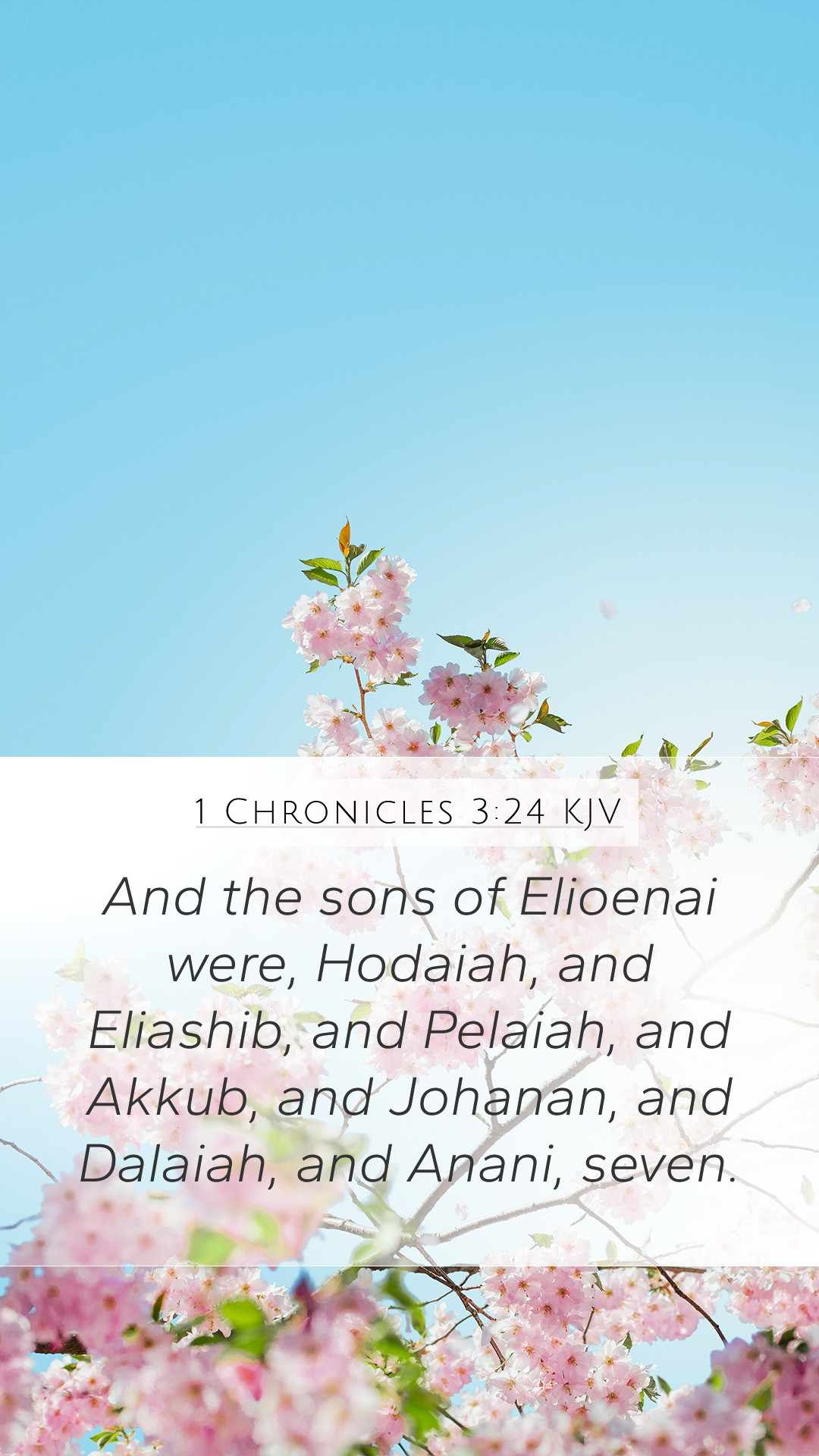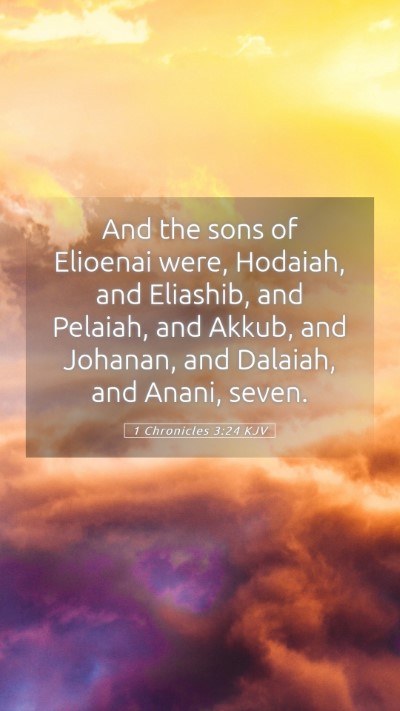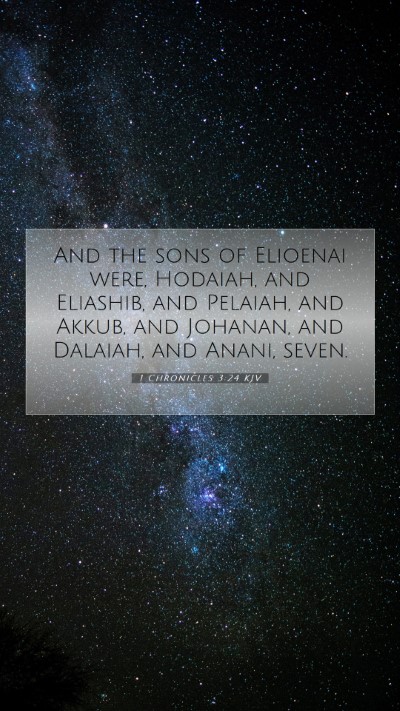Understanding 1 Chronicles 3:24
Bible Verse: 1 Chronicles 3:24
Verse: "The sons of Jonathan: Merib-baal; and Merib-baal begot Micah." (1 Chronicles 3:24, KJV)
Bible Verse Explanation
This verse lists the descendants of Jonathan, focusing on his son Merib-baal. The verse signifies the continuity of the lineage from Jonathan, emphasizing the importance of heritage and family in ancient Israelite society.
Bible Verse Meanings and Interpretations
The names mentioned bear significance:
- Merib-baal: His name translates to "the contender with Baal" or "the one who fights Baal," indicating a potential conflict between the worship of Yahweh and pagan gods.
- Micah: The name means "who is like Yahweh?" suggesting reverence for God's supremacy.
Insights from Public Domain Commentaries
Matthew Henry’s Commentary
Henry emphasizes the legacy of Jonathan, noting that despite the tragic end of Saul's family, his lineage continues through Jonathan's descendants. This highlights God's faithfulness to His promise regarding David's lineage.
Albert Barnes’ Notes on the Bible
Barnes points out that this passage reflects the historical context of the royal family during a time of transition, where these descendants may play a role in future narratives concerning the Davidic line.
Adam Clarke’s Commentary
Clarke elaborates on the implications of these names, linking them to the broader narrative of God's covenant with David, signifying that even in periods of obscurity, God preserves a remnant of His people.
In-Depth Scripture Analysis
This verse is part of a genealogical record, providing crucial information for those studying the heritage and distribution of tribes in Israel. Understanding this lineage fosters greater insight into God's overarching plan through family and covenant.
Bible Study Insights
For those engaging in Bible studies or group discussions, this verse can serve as a launching point for exploring themes of:
- The importance of ancestry in Biblical texts.
- The significance of names in conveying theological truths.
- The role of God's promises across generations.
Historical Context
In ancient Israel, genealogies such as this were vital for establishing tribal identities and maintaining claims to land and status. This lineage from Jonathan to Merib-baal demonstrates the continuation of God’s covenantal promise.
Cross References
This verse can be connected to several other passages for deeper study:
- 2 Samuel 9:6-7 — David's kindness to Mephibosheth, son of Jonathan.
- 1 Chronicles 8:33 — Further details on the family of Saul.
- Jeremiah 33:17 — Prophecies regarding David's line and the enduring nature of God’s promises.
Application of 1 Chronicles 3:24
This verse reminds us that every name has a purpose, and every lineage has a story. It demonstrates that:
- God is faithful to His promises across generations.
- An understanding of family history can help us appreciate God’s work in history.
- Even seemingly minor details in Scripture hold significant theological weight.
Bible Study Tools and Resources
For those looking to dive deeper into the meaning of Bible verses like 1 Chronicles 3:24, consider utilizing:
- Online Bible study platforms for group discussions.
- Bible study guides that focus on genealogy and lineage.
- Commentaries that provide verse by verse analysis for deeper understanding.
Conclusion
In summary, 1 Chronicles 3:24 is a profound reminder of the continuity of God's promises and the significance of lineage in understanding the full narrative of Scripture. Engaging with this verse through study and reflection can yield rich Bible verse meanings and insights into our faith.


